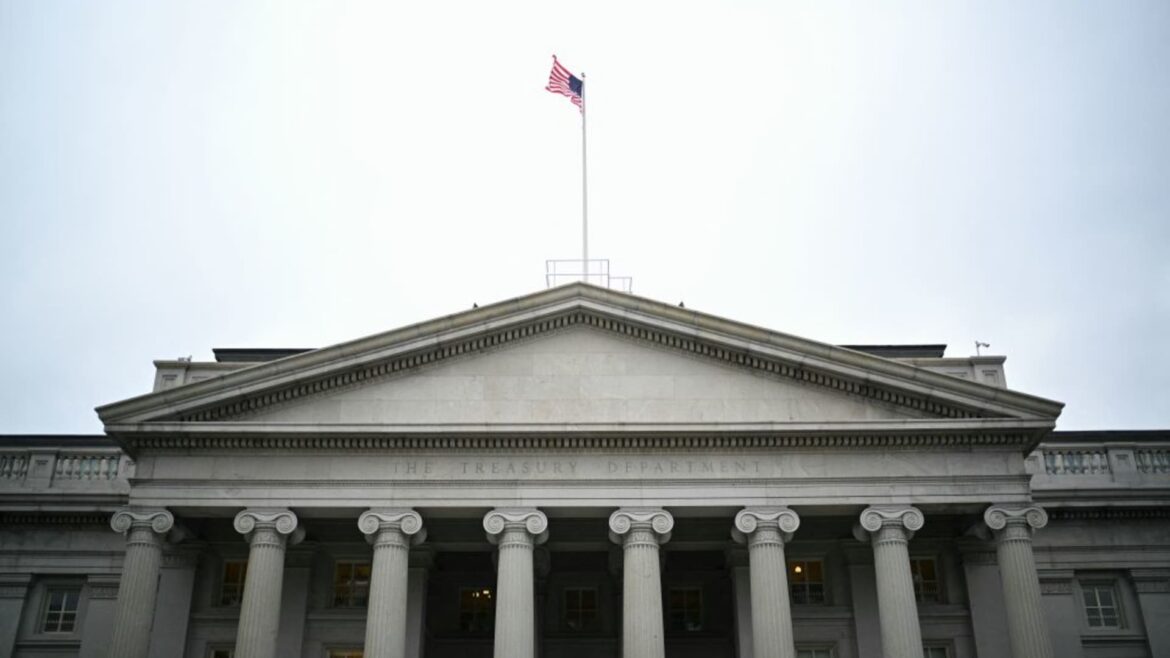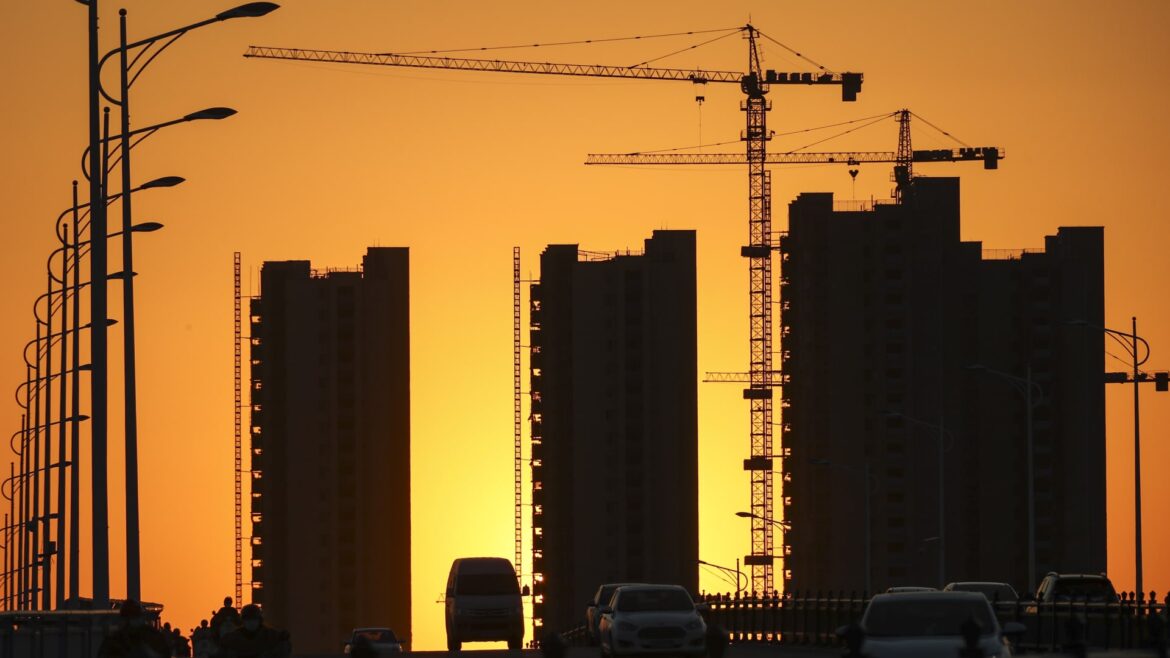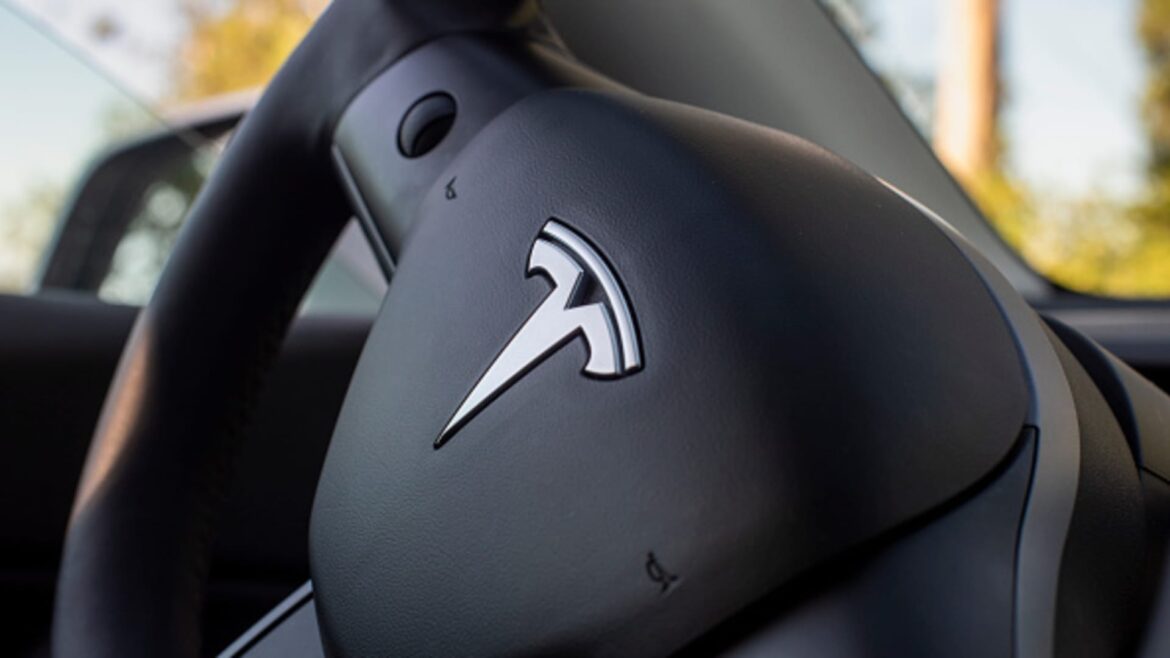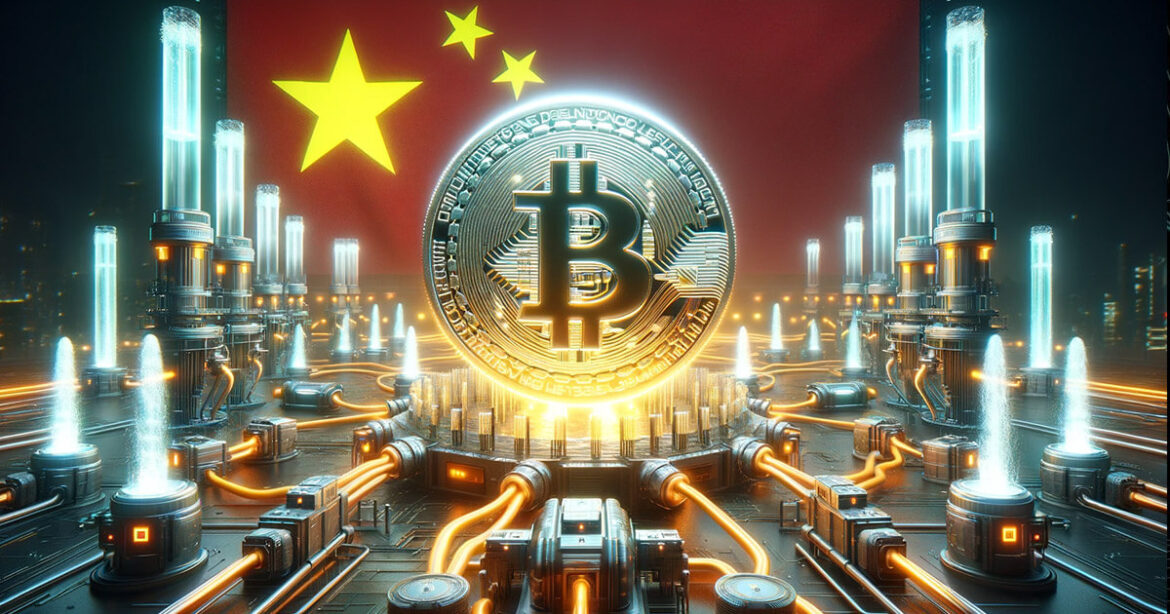
Fitch Ratings downgrades China outlook to negative as economic concerns rise
Source link
China
China blocks use of Intel and AMD chips in government computers, FT reports
(Reuters) -China has introduced guidelines to phase out U.S. microprocessors from Intel and AMD from government personal computers and servers, the Financial Times reported on Sunday.
The procurement guidance also seeks to sideline Microsoft’s Windows operating system and foreign-made database software in favour of domestic options, the report said.
Government agencies above the township level have been told to include criteria requiring “safe and reliable” processors and operating systems when making purchases, the newspaper said.
China’s industry ministry in late December issued a statement with three separate lists of CPUs, operating systems and centralised database deemed “safe and reliable” for three years after the publication date, all from Chinese companies, Reuters checks showed.
The State Council Information Office, which handles media queries for the council, China’s cabinet, did not immediately respond to a faxed request for comment.
Intel and AMD did not immediately respond to Reuters request for comment.
The U.S. has been aiming to boost domestic semiconductor output and reduce reliance on China and Taiwan with the Biden administration’s 2022 CHIPS and Science Act.
It is designed to bolster U.S. semiconductors and contains financial aid for domestic production with subsidies for production of advanced chips.
(Reporting by Akanksha Khushi in Bengaluru; Editing by Christian Schmollinger, William Mallard and Lincoln Feast.)
Why China, Japan and the Fed are shaking up the $26 trillion U.S. Treasury market
When investors think of the financial markets, the first thing that likely comes to mind is the stock market.
But there is a bigger, less-flashy counterpart to the equity market: the bond market. At the heart of the fixed income space lies U.S. Treasurys, one of the safest investments in the world.
“We have not paid attention to the Treasury market because it was a market for foreigners or for the Fed,” said Priya Misra, fixed income portfolio manager at J.P. Morgan Asset Management. “Now it’s a market for all of us, and it’s giving you better yield. So it’s something which we should not ignore.”
Buyers of U.S. Treasurys have been changing, with major players including China, Japan and the Federal Reserve seeing their respective holdings decline in recent years. The shift could have broad implications for the U.S. economy.
“What we’re observing is that [the new buyers] are a lot more price sensitive,” said Anders Persson, global fixed income chief investment officer at Nuveen. “They’re just not quite as sticky.”
Watch the video above to find out more about why major buyers are fleeing the U.S. Treasury market, the impact on yields and the economy at large, and how investors can best navigate the market going forward.
Many Chinese developers have halted or delayed construction on presold homes due to cash flow problems. Pictured here is a property construction site in Jiangsu province, China, on Oct. 17, 2022.
Future Publishing | Future Publishing | Getty Images
China’s economy is sputtering.
Its property market is crumbling, deflationary pressures are spreading across the nation, and its stock market has weathered a turbulent ride so far this year, with the country’s CSI 300 index erasing some 40% of its value from its 2021 peaks.
Adding salt to the wound, January PMI numbers released by China’s National Bureau of Statistics showed manufacturing activity contracted for the fourth month in a row, driven by slumping demand.
The slew of downbeat data has consequently triggered a wave of skepticism toward the world’s second-largest economy. Allianz for one, reversed its buoyant view of China, now forecasting Beijing’s economy to grow by an average 3.9% between 2025 to 2029. That’s down from a 5% forecast before the Covid-19 pandemic broke out.
Ex-International Monetary Fund official Eswar Prasad also told Nikkei Asia that “the likelihood of the prediction that China’s GDP will one day overtake that of the U.S. is declining.”
Meanwhile, top economist and Allianz advisor Mohamed El-Erian highlighted China’s dismal stock market performance against those in the U.S. and Europe in a chart on X, saying it shows the stark divergence between all three equity markets.

China itself, however, isn’t willing to confess its economy is in tatters. Chinese leader Xi Jinping said on New Year’s Eve that the nation’s economy had grown “more resilient and dynamic this year.”
Feeding on such optimism, it’s fair to say there’s been some signs of hope for the beleaguered economy, but perhaps not enough to sway the bears. For instance, factory activity in China expanded for a third-straight month in January, while the nation’s luxury sector appears to be snapping back.
Such data has prompted bullish chatter among investors, suggesting consensus on China clearly lacks uniform.
Era of stagnation
Nobel laureate Paul Krugman has been among some of the most bearish voices toward China, saying the country is entering an era of stagnation and disappointment.
China was supposed to boom after it lifted its stringent “zero-Covid” measures, Krugman wrote in a recent New York Times op-ed. But it did the exact opposite.
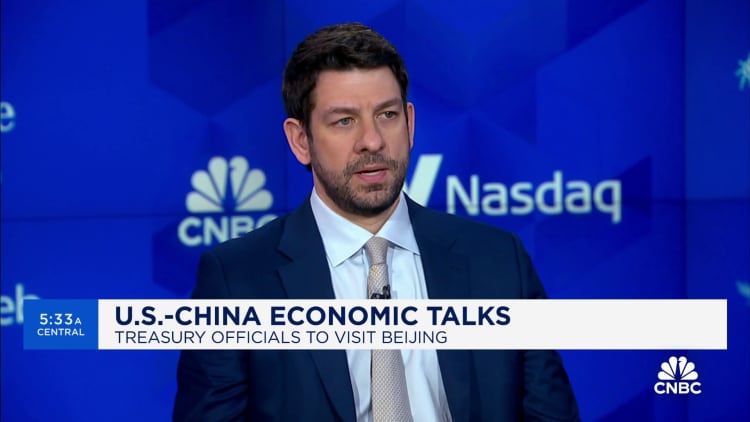
From bad leadership to high youth unemployment, the country is facing headwinds from all corners, Krugman argued. And the country’s economic stumble isn’t isolated, Krugman warns, potentially becoming everyone’s problem.
Property crisis
China’s well-known property troubles have been the crux of Wall Street bearishness toward the Asian nation.
The International Monetary Fund said it expects housing demand to drop by 50% in China over the next decade.
Speaking at the World Economic Forum in Davos last month, IMF chief Kristalina Georgieva said China’s real estate sector needs “fixing,” while Beijing needs structural reforms to avoid a decline in growth rates.
Meanwhile, famed hedge fund manager and founder of Dallas-based Hayman Capital Kyle Bass said the country’s heavily indebted property market has triggered a wave of defaults among public developers. That’s a problem, given China’s real estate market can account for as much as a fifth of the nation’s GDP.
“This is just like the U.S. financial crisis on steroids,” Bass said, referring to China’s default-ridden property market.
“China is going to get much worse, no matter how much their regulators say, ‘we’re going to protect individuals from malicious short-selling,'” he added.
“The basic architecture of the Chinese economy is broken,” Bass continued.
Glimmers of hope
A gloomy picture for China, however, isn’t shared by all.
The Institute of International Finance said Beijing has the policy capacity to push China’s economy toward its growth potential and stuck to its above consensus forecast for 2024 growth at 5%, in a recent blog post. That view, however, depends on sufficient demand-side stimulus. The latest GDP numbers out of China for the last three months of 2023 missed analysts’ estimates, with a figure of 5.2%.
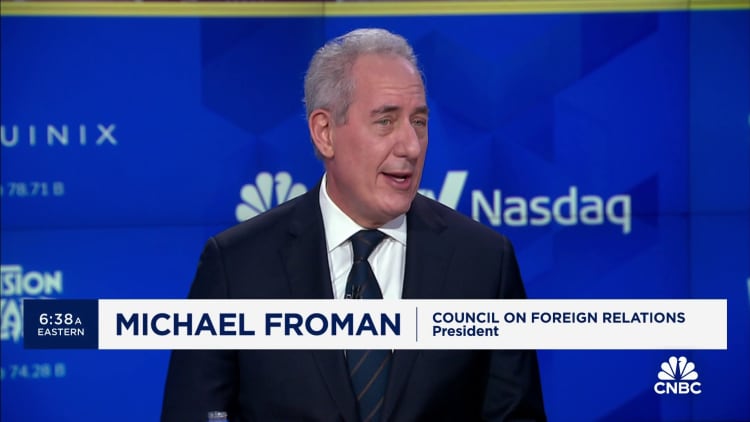
At the same time, Clocktower Group partner and chief strategist Marko Papic took an optimistic short-term view toward Chinese equities. In a Feb. 7 CNBC interview, Papic said he forecasts China stocks to jump at least 10% in the coming days as officials signal support efforts to bolster its flailing stock market.
A “10% to 15% rally in Chinese equities is likely in coming trading days,” Papic said.
JPMorgan Private Bank also outlined bull case scenarios for China in a recent post. “Despite the stock market’s slipping sentiment and persistent problems with the property market, certain segments of the Chinese economy have also proved their resilience,” it said.
The bank said China’s crucial role as a global manufacturer is unlikely to abate, adding that cyclical demand for its exports could remain intact.
Looking ahead, China has hurdles to overcome. Whether it has the firepower to do so, however, remains to be seen.
A deactivated Titan II nuclear intercontinental ballistic missile, or ICBM, is seen in a silo at the Titan Missile Museum in Green Valley, Arizona, May 12, 2015.
Brendan Smialowski | AFP | Getty Images
Federal prosecutors charged an engineer who worked at a Los Angeles-area company with stealing trade secret technologies developed for use by the U.S. government in space to detect nuclear missile launches and track ballistic and hypersonic missiles, the Department of Justice said Wednesday.
The DOJ said the technology allegedly stolen by 57-year-old Chenguang Gong would be “dangerous to U.S. national security if obtained by international actors.”
Gong, who lives in San Jose, California, is a native of China who became an American citizen in 2011, prosecutors said. He was arrested Tuesday and is due to appear at a detention hearing later Wednesday.
Los Angeles U.S. Attorney Martin Estrada said Gong previously sought to provide the People’s Republic of China with information that would help the nation’s military.
Gong, from 2014 through 2022, submitted multiple applications for so-called “talent programs” run by the Chinese government while “being employed by several major U.S. technology companies and one of the world’s largest defense contractors,” a criminal complaint filed in Los Angeles federal court alleges.
The Chinese Talent Program Tracker is known to identify individuals located outside China who have skills and knowledge that can help transform the Chinese economy and bolster its military capabilities, the complaint said.
“In his submissions to the Talent Programs, Gong proposed projects that mirrored his work for several of these companies, and repeatedly touted that his proposals would be useful to China’s military and that China did not yet have the technologies he was proposing to develop himself or share with Chinese companies,” the complaint said.
“We know that foreign actors, including the PRC, are actively seeking to steal our technology,” Estrada said in a statement, “but we will remain vigilant against this threat by safeguarding the innovations of American businesses and researchers.”
Read more CNBC politics coverage
The complaint said Gong transferred more than 3,600 digital files from the unidentified research and development company in Malibu where he worked for less than four months early last year to three personal storage devices.
The files were transferred between March 30 and April 25, and more than 1,800 of those files were transferred after he had accepted a job in early April at one of his company’s main competitors, the complaint said.
Much of the company’s work developing infrared sensor technology is funded through a contract with the Defense Department and other U.S. government contractors, the complaint says.
“The files Gong allegedly transferred include blueprints for sophisticated infrared sensors designed for use in space-based systems to detect nuclear missile launches and track ballistic and hypersonic missiles,” the DOJ said.
They also allegedly included “blueprints for sensors designed to enable U.S. military aircraft to detect incoming heat-seeking missiles and take countermeasures, including by jamming the missiles’ infrared tracking ability,” the department said.
Gong was responsible for managing the design and development of readout integrated circuits on the company’s sensors.
Many of the files he allegedly transferred were marked “proprietary,” “for official use only” and “export controlled,” the complaint said.
The company fired Gong in late April after searching his office in response to network activity and finding a flash drive containing files that had been transferred.
“The Victim Company then interviewed Gong, who provided evasive and contradictory answers but eventually admitted to having transferred files from his work laptop onto his personal drives and to having viewed those files on his personal computer,” the complaint said.
Gong began working at another company on May 1 but was fired nine days later after the victim company alerted the other firm to information about his file transfers.
The complaint said some of the files Gong is accused of stealing were found at his home by investigators last year.
Don’t miss these stories from CNBC PRO:
Tesla Model Y, equipped with FSD system. Three front facing cameras under windshield near rear view mirror.
Mark Leong | The Washington Post | Getty Images
Tesla on late Tuesday trimmed prices for its Model Y cars across several countries in Europe, a week after announcing similar price cuts for its Model 3 and Model Y cars in China.
The company reduced prices on its cars sold into Germany, France, Norway and the Netherlands, according to data from the local version of the firm’s websites in each of those markets.
In Germany, the Model Y rear-wheel drive model now sells for 42,990 euros ($46,760.65), marking a roughly 4.2% discount to the car’s previous retail value. The Model Y Long Range now costs 49,990 euros, lower by 8.1% from the previous price, while the Model Y rear-wheel drive model retails for 42,990 euros, down by 4.2%.
In France, Tesla lowered prices on its Model Y cars by as much as 6.7%, while in the Netherlands, Tesla reduced prices for the Model Y by up to 7.7%. In Norway, the company slashed prices by between 5.6% and 7.1%.
Tesla shares were 1.6% lower in U.S. premarket trading.
The reductions come after Tesla announced price cuts for its Model 3 and Model Y cars in China. The company has reduced prices for its cars aggressively in China over the past year or so, undercutting local competitor BYD.
Tesla trimmed prices of the Model 3 by 6% compared to December last year, also taking prices for the Model Y down by 11%, according to data from JL Warren Capital.
Tesla’s German operations have been affected by disruptions in the Red Sea after the Iran-backed Houthis group launched attacks on ships traversing the key route, wreaking havoc on global trade and drawing international criticism.
As a result of the Mideast turmoil, Tesla said it would suspend most car production at its Berlin-Brandenburg plant last week, citing a lack of components due to changes in transport routes.
Competition in the electric vehicle market has been heating up over the past year, with Tesla facing off a slew of other automakers. BYD, a Chinese carmaker which is backed by legendary investor Warren Buffet, toppled Tesla as the world’s biggest EV maker in 2023.
Volkswagen usurped Tesla as the EV king in its Germany, outselling the U.S. automaker last year with a market share of 13.5%, compared to Tesla’s 12.1%, according to figures from German federal motor authority KBA.
KFC is one of the world’s largest restaurant chains, with more than 29,000 locations and a new outlet opening every three and a half hours, according to Yum! Brands.
But while much of the brand’s early success came from the U.S., today the majority of its growth is in China.
KFC China recently celebrated the opening of its 10,000th store in the city of Hangzhou, about an hour outside of Shanghai. By comparison the U.S. has a little over 4,300 KFC locations.
Known in China for more than just chicken, a typical menu can include items like rice congee, steamed dumplings and egg tarts.
But the chain has faced headwinds including lockdowns due to Covid-19, concerns about the health of the Chinese consumer and questions about plans for future growth.
So how did KFC overtake other fast food chains like McDonalds, Starbucks and Taco Bell in China, and can the business continue to grow? CNBC traveled to Hangzhou, China, and got an exclusive interview with the CEO of Yum China, Joey Wat, to find out.
Watch the video to learn more.
Opinion: U.S. companies should look past politics and focus on selling products in China

China’s crackdown on domestic dissent, paranoia about espionage, persecution of private executives and harassment of foreign businesses have instigated widespread fear, pessimism and deflation.
However, China is not Japan in the 1990s. It has a formidable export machine that is not simply based on a cheap currency, inexpensive labor and subsidies. Otherwise, China’s consumer spending growth would be negative rather than just growing less rapidly owing to a lack of real income, not simple apprehension about the property sector,…
Master your money.
Subscribe to MarketWatch.
Get this article and all of MarketWatch.
Access from any device. Anywhere. Anytime.
Already a subscriber?
Log In
Nike’s warnings on China should scare other companies that do business there

-
Nike stock plunged on Friday after the athletic gear giant cut its fiscal-year sales outlook.
-
Sales in China fell short of forecasts, and the company warned of headwinds there.
-
That comes as China’s post-COVID economic recovery has fizzled, with consumer demand remaining weak.
Nike sounded another alarm on China’s economy, signaling that weak consumer demand may continue hanging over companies that do business there despite Beijing’s efforts to stimulate growth.
In its fiscal second-quarter report late Thursday, the sports apparel giant beat earnings views, but its 1% revenue gain to $13.39 billion missed forecasts for $13.43 billion. Greater China sales rose 4% to $1.86 billion, below the expected $1.95 billion as growth slowed from the prior quarter.
Nike also cut its full-year sales forecast to a 1% gain from its prior view for mid-single-digits growth. And management announced plans to reduce costs by as much as $2 billion over the next three years.
“This new outlook reflects increased macro headwinds, particularly in Greater China and EMEA, adjusted digital growth plans based on recent digital traffic softness and higher marketplace promotions, lifecycle management of key product franchises and a stronger US dollar that has negatively impacted second half reported revenue versus 90 days ago,” CFO Matthew Friend said on the earnings call.
Nike stock declined more than 10% Friday, and rivals Adidas and Under Armour fell 5% and 3%, respectively. Shares of Foot Locker, which relies on Nike products in their stores, also moved 4% lower.
Other companies with heavy exposure to China have also reported weakness recently. Last month, Apple said quarterly revenue in China, its third largest market, fell 2.2% to $15.1 billion, well below the $17 billion Wall Street expected.
In addition to flagging consumer demand, Apple has also had to battle Beijing’s decision to ban the use of iPhones by government employees as well as the ongoing shift for domestic customers to opt for local Chinese tech brands over foreign names.
Still, the warnings from Nike and Apple suggest that China’s economy is continuing to languish after Beijing removed strict zero-COVID policies late last year.
Despite the central government’s stimulus efforts, key headwinds remain, particularly across the indebted property sector, which has raised concerns of a potential “Lehman” moment and slammed consumer confidence.
That in turn has led to less spending, more precautionary savings, and even signs of deflation. Meanwhile, foreign investors have been pulling out of the country in droves.
Bank of America strategists warned in September that China’s stalling economy presented risks to a swath of US companies including Applied Materials, Broadcom, Wynn Resorts, and Qualcomm.
But China’s pain could be America’s gain, especially if weak prices there translate to less inflationary pressure here, according to market veteran Ed Yardeni.
“China’s weak economy is good news for the US in particular, helping to moderate goods inflation without a recession here, aka ‘immaculate disinflation,” he said last month.
Read the original article on Business Insider
Bitcoin thrives as China combats deflation with fresh liquidity injections

What is CryptoSlate Alpha?
A web3 membership designed to empower you with cutting-edge insights and knowledge. Learn more ›
Connected to Alpha
Welcome! 👋 You are connected to CryptoSlate Alpha. To manage your wallet connection, click the button below.
Oops…you must lock a minimum of 20,000 ACS
If you don’t have enough, buy ACS on the following exchanges:
Connect via Access Protocol
Access Protocol is a web3 monetization paywall. When users stake ACS, they can access paywalled content. Learn more ›
Disclaimer: By choosing to lock your ACS tokens with CryptoSlate, you accept and recognize that you will be bound by the terms and conditions of your third-party digital wallet provider, as well as any applicable terms and conditions of the Access Foundation. CryptoSlate shall have no responsibility or liability with regard to the provision, access, use, locking, security, integrity, value, or legal status of your ACS Tokens or your digital wallet, including any losses associated with your ACS tokens. It is solely your responsibility to assume the risks associated with locking your ACS tokens with CryptoSlate. For more information, visit our terms page.



